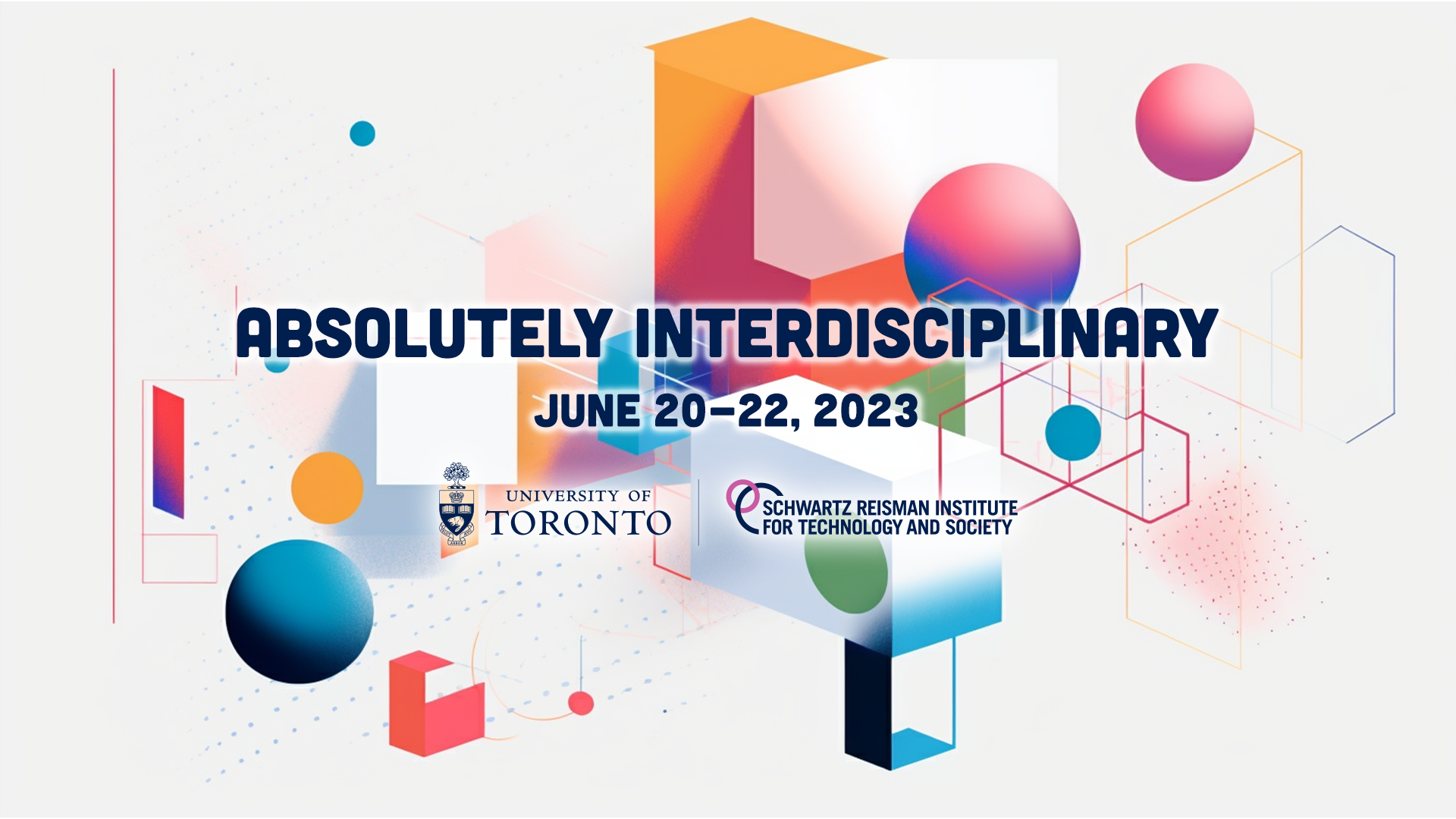
Risk and uncertainty: What should we do about AI?
Is AI development moving too fast? In a panel on TVO’s The Agenda with Steve Paikin, SRI Director and Chair Gillian Hadfield was joined by Jeremie Harris and Pedro Domingos to discuss what risks AI poses to humanity, and what we should do about it.
Absolutely Interdisciplinary returns to spark new insights into the future of AI
The Schwartz Reisman Institute’s annual academic conference returns for a wide range of stimulating discussions on how the next phase of AI development will transform our world. Join keynote speaker Blaise Agüera y Arcas, panelists Richard Sutton, N. Katherine Hayles, and William Cunningham, and more. Registration is now open.
New research on training decision-making AI reveals insights into normative judgments
A new paper by Aparna Balagopalan, David Madras, David H. Yang, Dylan Hadfield-Menell, Gillian Hadfield, and Marzyeh Ghassemi describes how decisions made by machine learning models can be improved by labelling data that explicitly reflects value judgments.
Prof to offer experimental course taught with AI tools
SRI Faculty Affiliate Paolo Granata, associate professor and program coordinator in the Book & Media Studies program at St. Michael's College, has developed a new course that explores the ethics and impact of AI tools like ChatGPT.
The art and science of recommender systems: Insights from Spotify
In a special event hosted by SRI Research Lead Ashton Anderson, Spotify’s Senior Director of Research Mounia Lalmas shared insights into how the platform’s recommender systems craft personalized listening experiences.
Successful partnerships during health emergencies require effective governance strategies
In a recent article in PLOS Digital Health, SRI Graduate Affiliate Vinyas Harish explores how cross-sector partnerships can enable new technologies for more effective healthcare during emergencies, and the importance of robust governance frameworks.
Karina Vold recognized with AI2050 Early Career Fellowship
SRI Research Lead Karina Vold has been awarded an inaugural AI2050 Early Career Fellowship from Schmidt Futures for her research at the intersection of philosophy, cognitive science, and artificial intelligence.
Buyer beware of the generative AI bandwagon
The potentials of generative AI technologies are exciting, but they come with new sets of risks, observes SRI Policy Lead Phil Dawson, and enterprises must develop new strategies for third-party risk management to navigate the emergent challenges associated with these systems.
SRI and Munk School partner to host inaugural Toronto Public Tech Workshop
The Schwartz Reisman Institute is partnering with the Munk School of Global Affairs & Public Policy to co-host the inaugural Toronto Public Tech Workshop, held in person June 9–10, 2023, which will present new and exciting research that explores the use of technology for public purposes. The call for papers is now open.
Discerning signal from noise: New SRI report explores insights from the state of global AI standardization
In a new report published by the Standards Council of Canada, the Schwartz Reisman Institute surveyed the global landscape of AI standards to identify key areas to leverage standards for AI assurance.
Meeting the challenges of cybersecurity requires new regulatory solutions
Can government regulation benefit cybersecurity in the private sector? What requirements are needed to better assess threats and reduce vulnerability for Canadians? To answer these questions, SRI Research Lead David Lie led a panel discussion on the future of cybersecurity regulation.
Digital literacy will be key in a world transformed by AI
The rise of AI language models highlights the need for digital literacy skills to manage the vast amounts of information to which people are exposed, write Valérie Kindarji and Wendy H. Wong. The authors explain why digital literacy is a necessary framework to function in a tech-driven world, and a critical pillar of democracy.













